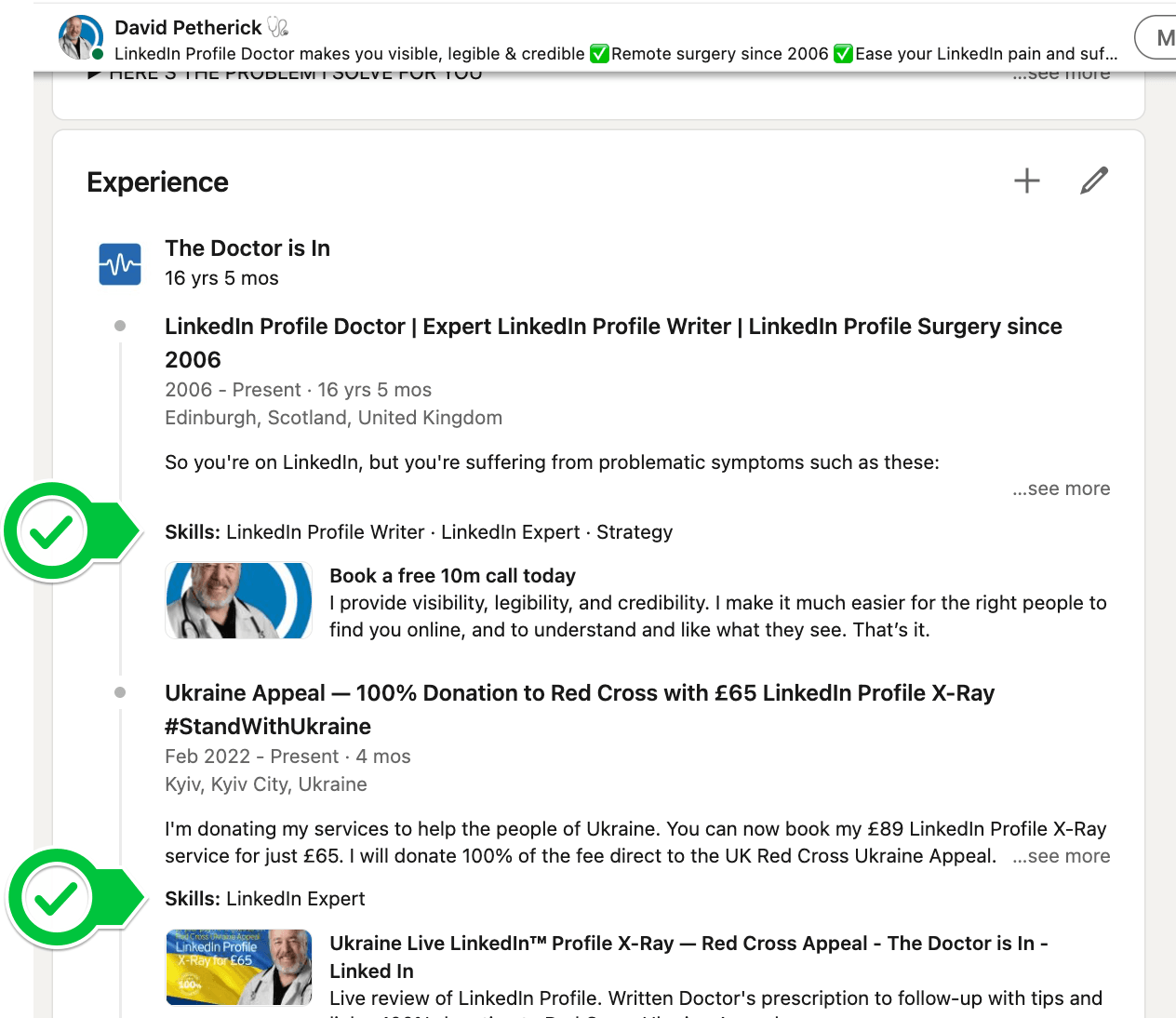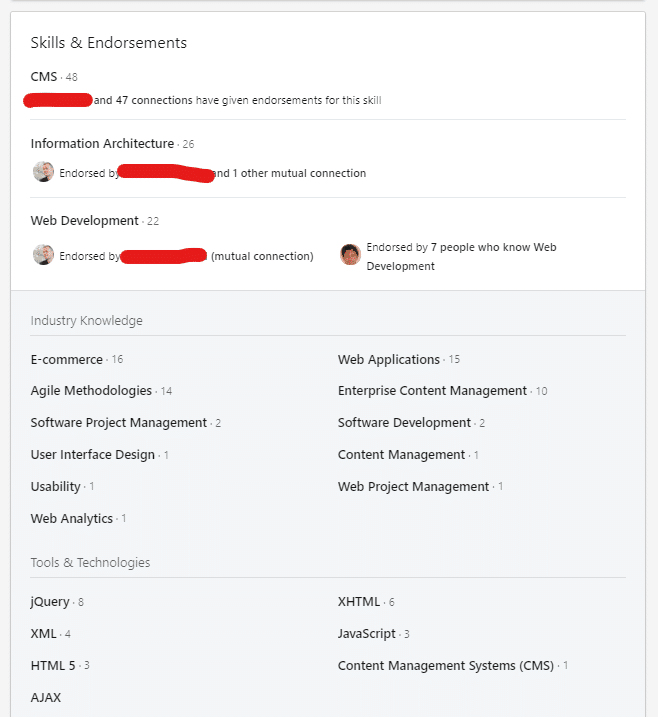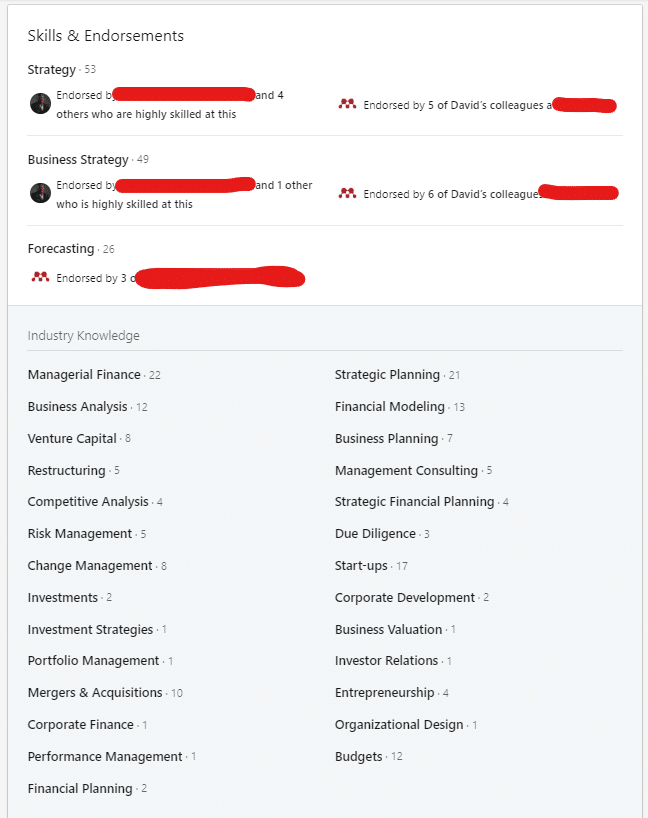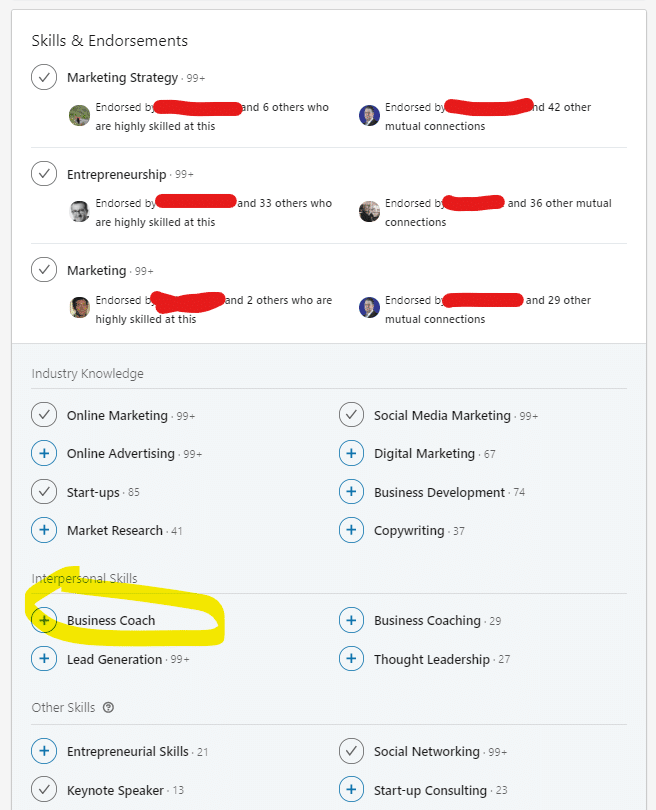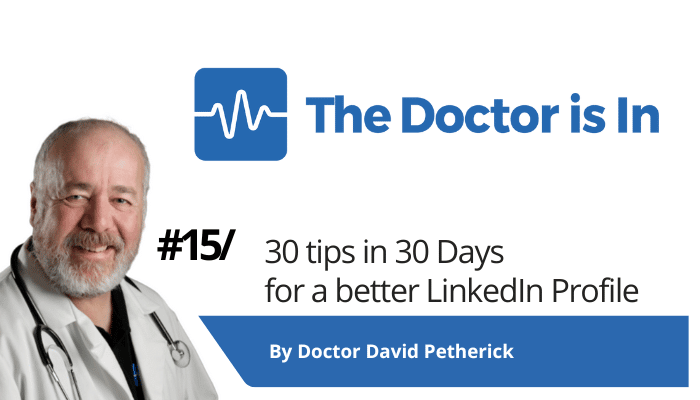
30 LinkedIn Tips: #15/30 – Select & Sort your Skills
30 short, useful, actionable LinkedIn tips in 30 days from Doctor David Petherick. #30by30 #TheDoctorisIn
#15/30: Choose your skills carefully, and place them in the right order.
- Originally written: October 15, 2017
Text & Images Updated: February 1, 2024
Take a look at the skills listed on your profile.
Then take a look at your job title or headline.
Is there a natural match between the two?
If not, here are some tips for exactly how you can fix that, along with a few examples of disconnected profiles I've come across.
I've split this article into five sections for you.
To get into the options for the skills section, view your own profile page when logged in, and click on the small pencil icon at top right of the Skills section.
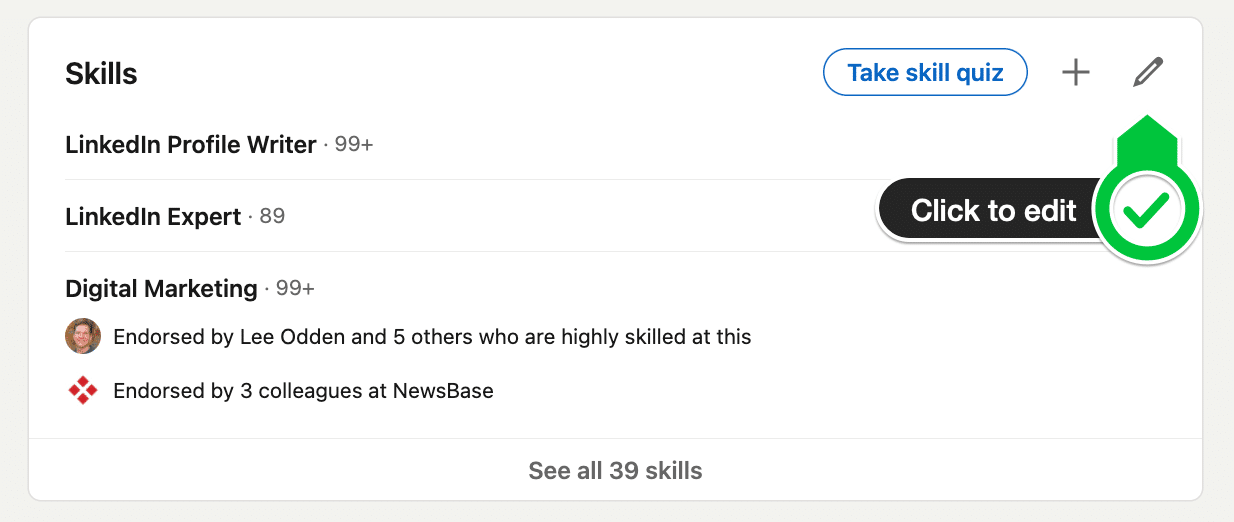
Click through to amend skills options
But before you start — check that you are allowing people to endorse you on your profile for your skills.
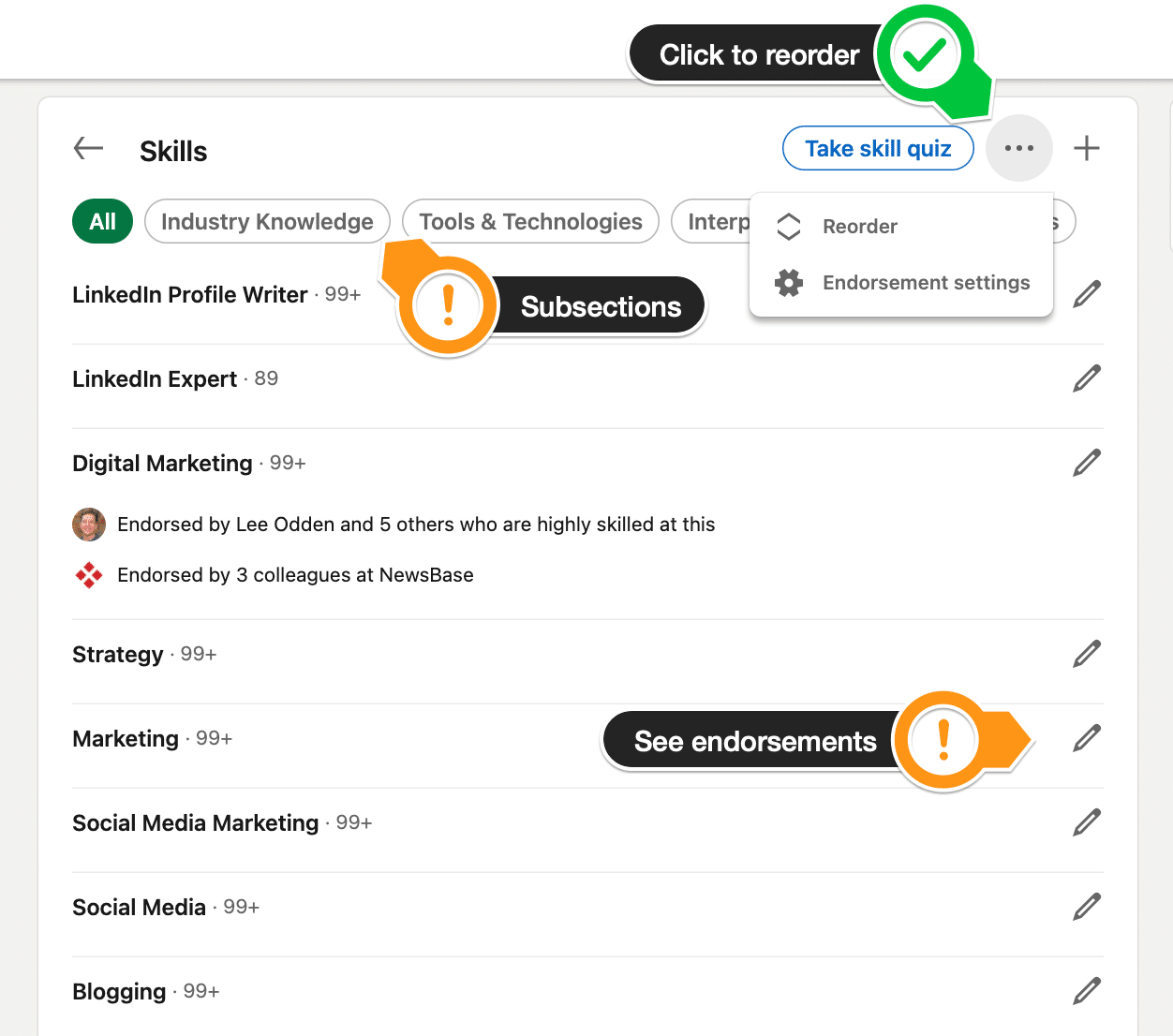
Reorder skills section and allow endorsements
The Endorsement checklist below is what you'll see if you click through on 'Endorsement settings', the second link on the three-dots menu at top right —
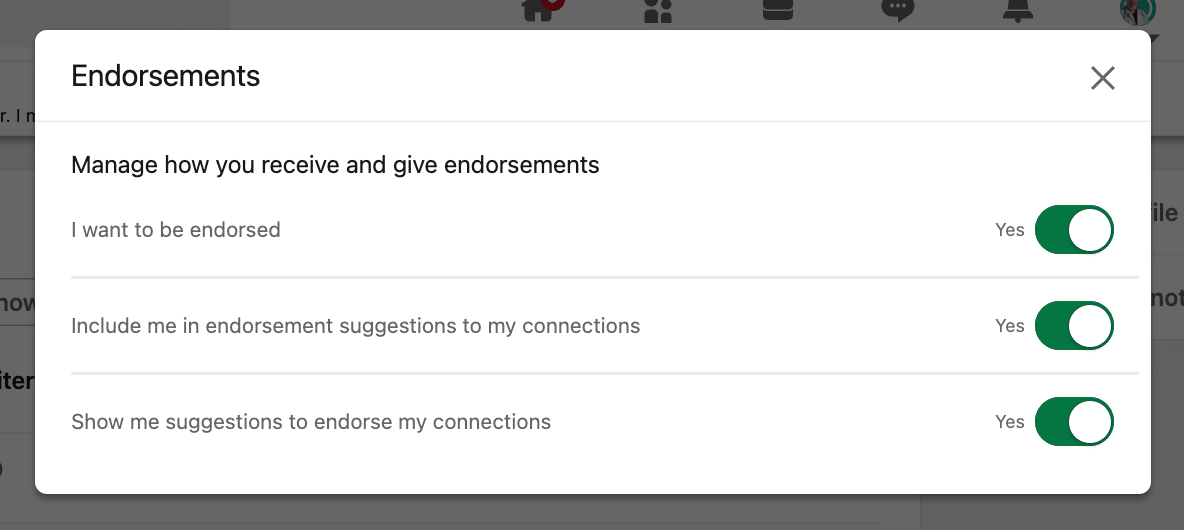
Endorsement Options
You can also click through on 'Reorder' to reorder your skills. I recommend that you group similar skills together for coherence.
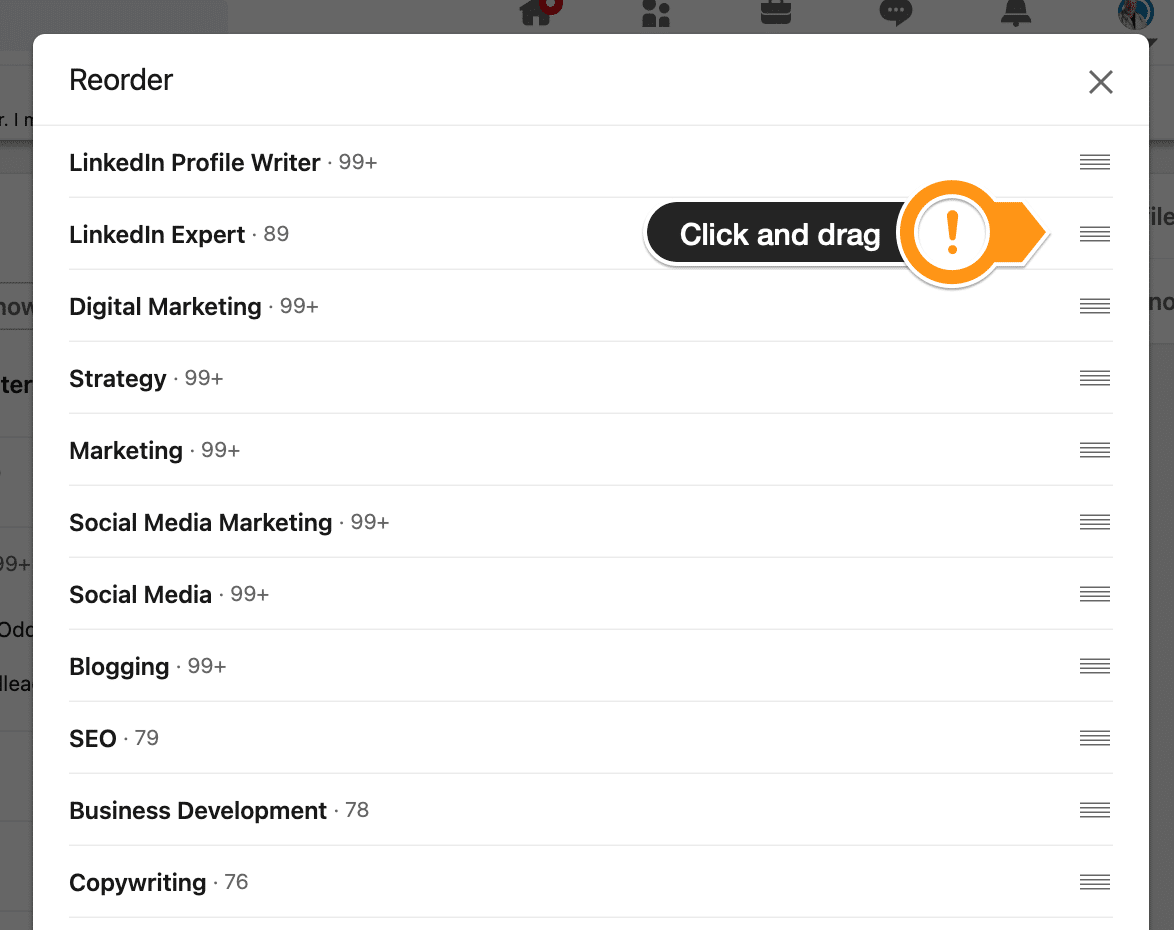
You can now take LinkedIn skills tests in a growing number of technical subjects, so that you can demonstrate that you actually have a skill, rather than simply claim to have it. Skills where you have passed a test have a blue check-mark against them.
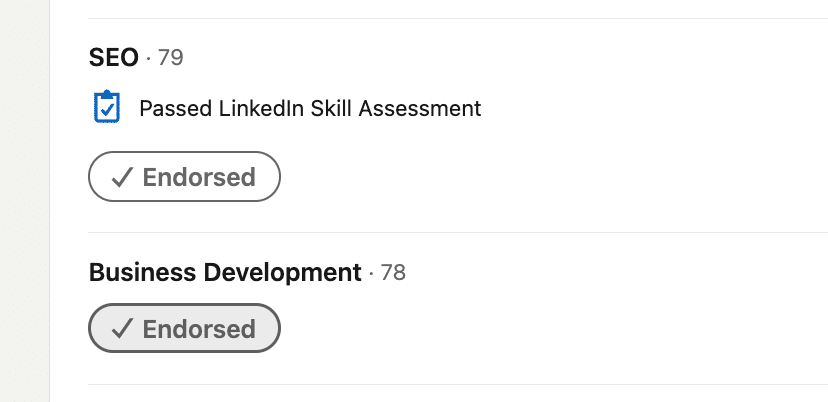
Visibility is different when you have passed a Skills Test
Assign your skills to specific areas of experience
LinkedIn introduced the ability to assign skills to specific experiences or jobs in May 2022.
This allows you to display skills alongside your experience sections, and changes the appearance of the skills section on your profile, to show which roles this skill is related to.
To add a skill for a specific bit of experience, you edit the experience and scroll down until you locate the 'Skills' section. You can then add a recommended 5 of your skills to this experience.
The first ten or so will appear on your profile, depending on the length of the text that constitutes the skill.
Skills appear in order of which has the most endorsements.
The other way to do this is to edit your skills, and assign each individual skill to individual experiences.
You can also assign skills to your Education, Volunteering and Accomplishments sections when you assign skills from the skills section, so for example, you can assign a skill to a publication or project.
It's not clear at time of writing how this will affect the weighting of skills in search results, but I'd say it will probably act to increase the importance of skills, and because it will link particular skills to a particular job title / experience then it may also impact searches based on skills that recruiters undertake using LinkedIn's Recruiter product.
1: So, why do skills even matter on a LinkedIn Profile?
Four main reasons -
- Search. If you use a Recruiter Premium Account, you can now choose to sort a list of candidates by the skills required for the position. And guess who uses Recruiter Premium Accounts? You got it - Recruiters.
- Alignment. If you see a job title like CFO, or Chief Financial Officer, you'd naturally expect that there were some associated fiscal skills: Business Planning, Budgets, Strategic Planning, Business Development. Where that's missing, it's a red flag.
- Credibility. It's simple social proof - if you have dozens of endorsements for your skills, you look more credible than someone with few, or no endorsements.
- Search (again). Skills are also 'weighted' in standard and advanced LinkedIn searches - and so a lot of endorsements for skills relevant to your position help you to be found. And recruiters just love to search on skills. No skill = not found = no job offer.
And four more very relevant facts direct from LinkedIn's Economic Graph:
- Skills for jobs have changed by ~25% since 2015 & by 2027 they are expected to change by ~50%
- Members have added 286 million skills to their profiles in 2021 (up 22% from 2020)
- 40% of Hirers on LinkedIn explicitly used skills data to fill open roles in 2021 (up 20% year over year)
- Hirers on LinkedIn are 60% more likely to find a successful hire than those not relying on skills as a part of the hiring process.
2: Show me the problem
To protect the guilty, I've anonymised the screen grabs in the examples below.
Example #1: CTO. (Chief Technology Officer) This individual appears to be a skilled web developer and coder. But there is no mention of bigger skills, like Strategy, Business Process or Leadership.
Example #2: CFO. (Chief Financial Officer) This is oddly aligned more towards strategy, and some congruent skills that could be grouped together are scattered around. seem to be missing. Some of the skills I'd expect to see in any Chief Financial Officer are there, but why are Managerial Finance or Strategic Financial Planning not in the Top 3?
Example #3: Business Coach. These skills ticks the boxes with relevant skills, and high scores for most of them. Also seems to focus on Marketing and Strategy, which works for me. Credibility. However, missing a trick with no endorsements for 'Business Coach'.
- So as you can see from these simple examples, looking at the skills in relation to the actual job title or job function shows that when there's alignment, it adds instant credibility - and when there's not, it puts questions in your mind.
Of course, very often the reason for this discrepancy is that your skills have not been added to your profile in a structured, strategic way in the first place - and you may have been endorsed for skills that you do have, but which are not actually meaningful in terms of your job function.
For example, I know how to use the MS Office suite, and know how to use both PCs and Macs. I also know how to write HTML and CSS, and use WordPress, but these are not skills that I need to advertise.
3: Why are skills important to recruiters?
Many recruiters use a version of LinkedIn that is designed just for recruiters, giving them search, sort and 'filing' capabilities that ordinary users don't have access to. The bottom line is - they will often carry out a search based on skills.
If you don't have the right skills, they don't find you. If they don't find you, they can't offer the position to you, because you are invisible to them - you do not appear in their search results because you don't have the skills they've specified.
4: What should I do about my skills?
There are seven key steps to take -
- Look around you. Check out the profiles of people you admire or respect, and see what skills they list. Make a note of the most important or impressive, and copy/paste into a note file the key skills that they and you have, but which may not be on your profile now. It's as easy as typing in a skill to add it to your profile.
- Ask your friends and peers. Ask people what skills they'd say you have. You can sometimes be surprised by the results, and find that people recognise you for skills you'd not really considered you had.
- Prioritise. In terms of how skills are viewed, there's a Top 2 which are visible without a click, and then up to another 100 (Increased from 50 in January 2024). In my view, even 50 skills are too many for the mind to assess — and I can't enumerate 100 skills for anyone that I know. Try aiming for a maximum of 30. And decide what your Top Two skills are, and list them in order of importance - not just in the order of popularity so far, which is what LinkedIn shows as default.
- Group. Placing related, congruent skills together makes it easy for people to endorse you for the skills they recognise in you. So put Marketing together with Marketing Strategy and Digital Marketing, and don't leave important skills lost on their own. You simply drag and drop to move them around so your congruent skills are alongside each other.
- Edit your skills. You can add new skills (An AI will often add suggestions), and re-prioritise and group similar skills. Make this a regular habit, and revisit your skills at least every quarter.
- Ask for endorsements. And an easy way to start getting endorsements for your skills is to give them. I also changed my notification settings to that I receive an email when people endorse me, so that I can spend time thanking them, and as appropriate, also endorse their skills. Yes, it becomes a bit of a game, but it has an important purpose.
- Don't sit back. Is it SEO, or Search Engine Optimisation or Search Engine Optimization people are searching for? And as you now work optimising Apps for search, do you call it ASO or App Search Optimisation / Optimization? Things change, and people use different ways of naming things, and phrases evolve. Anyone remember describing working in 'New Media' or 'Web 2.0' in the early 2000s? Keep it fresh.
5: What if I get stuck?
Ask for help. I'm happy to spend ten minutes with you to help you enhance your profile - no sales pitch, no fee or email signup nonsense, just free, expert, unbiased advice. Visit is-in.link/talk to make a ten-minute appointment to suit your diary to talk by Zoom.
- More Tips: 30 Top Tips for a better LinkedIn Profile – Rounded up and summarised…
- Found these tips useful? Why not thank me by buying me a coffee?

